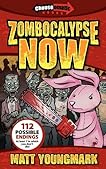I finally got this book from the library after reading about it a couple of months ago and following the young author's Twitter and his fascinating blog.
Like Society Without Religion, The Unlikely Disciple tells the story of a society and an alien culture with very different religious ideas than the society I live in. Kevin Roose, however, is not a professional ethnographer, but a sophomore at Brown. Roose, a self-described agnostic was raised in a Quaker home. After a year at Brown, he decides to "study abroad" by enrolling as a transfer student at Liberty University (on leave from Brown).
Roose quickly gets involved in life at Liberty, joining the choir, playing IM softball, making friends, and dating (Liberty style - no kissing). He discovers that conservative evangelicals are people too, largely concerned about their grades, their love life, their techno-toys. With the exception of Roose's scary-crazy, potentially violent, homophobic roommate, no one actually seems unhinged.
Nonetheless, there's a lot that's wrong at Liberty. As Roose says:
"Absolute truth exists. At Liberty, unlike many secular schools, professors teach with the view that there is one right answer to every question, that those right answers are found plainly in the Bible, and that their job is to transfer those right answers from their lecture notes to our minds. It's a subtle difference in ideology, but it makes for big changes in teaching style."
I would argue that it's not so subtle a difference, but anyway. The point is that Liberty thinks it is the exact inverse of liberal secular schools, which, depending on who you ask, must either teach doctrinaire Communism or be a completely morally relative free-for-all. I.e., conservative evangelicals appear to know even less about secularists and mainline Christians than we know about them. Oh, and calling a place that discourages independent critical thinking a "university" is absurd.
Not all of our stereotypes of evangelicals are wrong. As Roose says, "GNED II is the class a liberal secularist would invent if he were trying to satirize a Liberty education. It's as if Brown offered a course called Godless Hedonism 101: How to Smoke Pot, Cross-dress, and Lose Your Morals." And everyone's first instinct in the face of adversity or difficulty seems to be to pray for help, rather than solve the problem. I have nothing against prayer, I rely on it myself, but at University, young people are supposed to learn problem solving and life skills to handle things outside the purview of Prayer. The chapel is packed right before finals.
"Say what you will about young-earth creationism... but there's something depressing about a credentialed, university-level scientist who freely admits that he wouldn't budge in his beliefs even if all the evidence in the universe contradicted one of his scientific theories."
He scoffs at one professor who argues the fossil record supports the Biblical creation story:
“Isn’t the appeal of young-earth creationism supposed to be its simplicity? If I say I don’t believe in evolution, can I get an A and skip the rest of the semester?”
Clearly, having a PhD in biology doesn't actually make you a scientist. Science is simply the idea that the best way to understand the world is via a rational, empirical process. No one who teaches at Liberty is allowed to hold this view.
So Roose discovers that (apart from his crazy roommate) nearly everyone at Liberty is nice, sincere, and wants to do good. He doesn't address thoroughly enough the issue that they're nice to him, because he appears to be one of them. Being nice to people in your group isn't much of an accomplishment. Nearly everyone wants to do good, but some people think this involves killing gay or black people, for instance.
It's sometimes hard reading, dealing with homophobia, Intellectually indefensible young-earth Creationism, guest speakers like Sean Hannity and Karl Rove, following a 46 page code of conduct that regulates every aspect of their social lives, occasional racism, and a lot of stories that sure didn't come up in the Quaker meeting he grew up in.
He left the experiment changed forever, the bonds he forms even inspire him to begin praying with a pal. He’s not completely convinced, but he says prayer sometimes helps. Now, back at Brown, Roose continues to nurture a nascent prayer life.
I believe true goodness comes from empathy, and realizing that those around you are people like you, whether or not they're in your group. True learning comes from reflection, study, and experiment that sometimes challenges your beliefs, not that which merely reinforces them. In that, Liberty clearly fails as anything but a propaganda mill and Roose realizes this, I think, much to his own regret.
This is his first book and his writing skill easily outstrips his age and experience level. It's a picture of American Evangelical Christianity painted by an outsider in the rarest of ways, with honesty, care and openness. For a while, The Unlikely Disciple was banned from Liberty’s bookstore. That decision has since been reversed by an advisory committee, though they did so with a small disclaimer above the display. Good for them.
This book is a great, truly engaging read, and does a good job humanizing conservative evangelicals for me. But it leaves me feeling sorry for Liberty students. However happy they are (and many of them are very happy, in between bouts of fearing hell and overwhelming guilt), they are emotionally and intellectually crippled by the school they both love and trust.
 The Steel Remains by Richard K. Morgan
The Steel Remains by Richard K. Morgan













